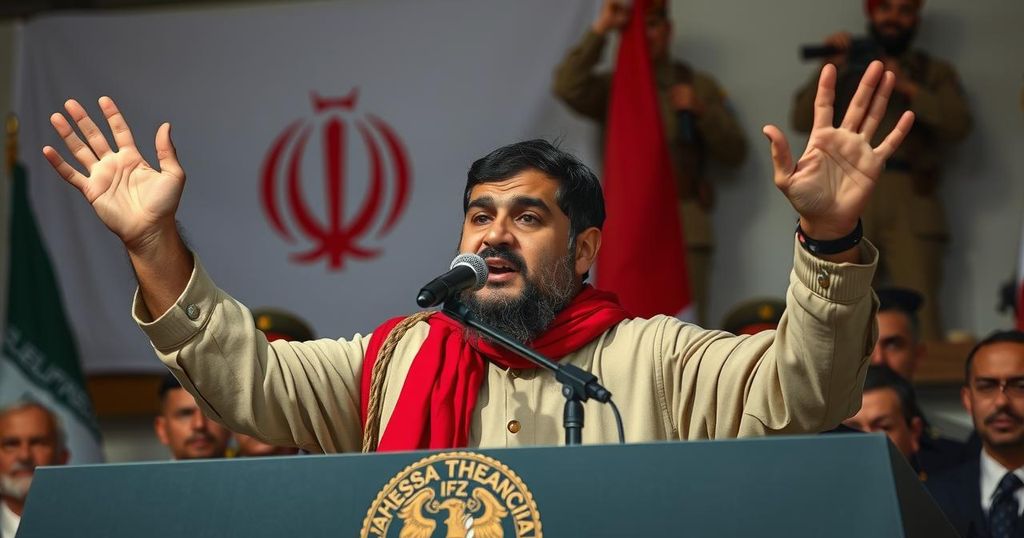Abu Mohammad al-Jolani: A New Vision for Syria and a Message to Regional Powers
Abu Mohammad al-Jolani, leader of Hayat Tahrir al-Sham, recently delivered a victory speech at the Umayyad Mosque in Damascus, asserting his commitment to unify the Islamic community against Iranian influence and promising to reform Syria’s reputation. This speech is a pivotal moment in his leadership journey, signaling both a rejection of past extremist tactics and a desire to align with international powers, notably the United States and Israel. Jolani’s actions following this declaration will determine his effectiveness and stability as a leader.
Abu Mohammad al-Jolani, a former al Qaeda fighter and current leader of the Syrian rebel group Hayat Tahrir al-Sham (HTS), has exhibited a notable transformation over the years, transitioning towards a principle of sectarian tolerance. In his recent victory speech delivered at the historic Umayyad Mosque in Damascus, Jolani emphasized that his success represents a triumph for the entire Islamic community. He acknowledged the hardships endured by the Syrian people, particularly martyrs, widows, and orphans, and sought to unify the diverse sects within Syria’s complicated religious landscape.
Jolani specifically targeted the influence of Iran, conveying a clear message that its meddling and attempts to spread sectarianism within Syria must end. His declaration signals Iran’s diminishing role, especially concerning its connections with Hezbollah. Moreover, his carefully curated message reached audiences in Tel Aviv and Washington, where he is recognized as a proscribed terrorist under a $10 million bounty. By engaging with key media outlets and leaders, including U.S. President Joe Biden and President-elect Donald Trump, he articulated intentions of distancing from more extreme jihadist elements.
Additionally, Jolani addressed regional powers, promising a reform of Syria’s image, notably its reputation as a narco-state under President Bashar al-Assad’s regime. He declared, “Syria is being purified,” positioning himself as a reformer for a new Syria. Ultimately, while his speech articulated a desire for unity and reform, it is his subsequent actions that will determine his leadership stability and the success of his agenda.
The context surrounding Abu Mohammad al-Jolani’s emergence as a prominent figure in the Syrian conflict stems from his early involvement with al Qaeda and his evolution into a leader focused on establishing a more moderate governance model. As the conflict in Syria progressed, his organization gained significant ground against the Assad regime, leading to his recent proclamation of victory in Damascus. The underlying tensions involving Iran’s interventions, the complex sectarian divisions across Syria, and external perceptions from global powers like the U.S. and Israel all contribute to the significance of Jolani’s statements and strategy.
In summary, Abu Mohammad al-Jolani’s victory speech at the Umayyad Mosque encapsulates his journey from a militant background to a self-styled reformer eager to redefine Syria’s political landscape. His messages resonate deeply not only with the Syrian populace but also with influential regional and international stakeholders. Yet, it remains imperative that he translates his rhetoric into genuine governance reforms to solidify his leadership and position within the tumultuous landscape of Syria.
Original Source: www.cnn.com




Post Comment